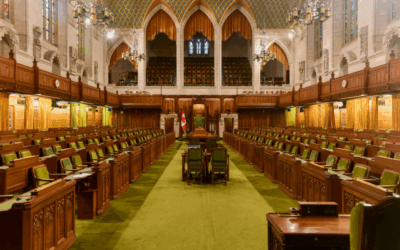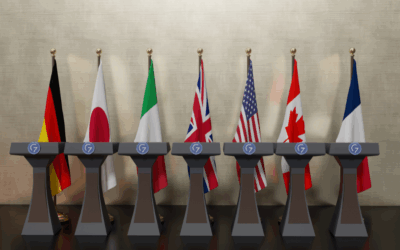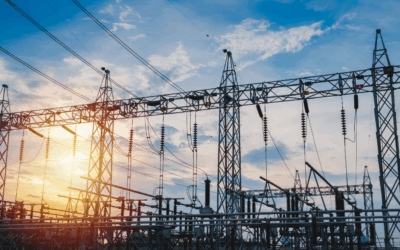Bill C-5 was passed last week and the legislation is aimed at building a more resilient Canadian economy by removing federal barriers to internal trade and labour mobility, while progressing nation-building projects to bolster productivity, energy security and economic competitiveness.
Perspectives
LNG makes history in Canada
A historic milestone was reached this week as Canada’s first-ever shipment of liquefied natural gas (LNG) departed from the LNG Canada terminal in Kitimat, British Columbia, bound for buyers in Asia. This moment marks Canada’s official entry into the global LNG market, an achievement that’s been years in the making.
From mountains to momentum: Canada’s energy at the G7 Summit
This week’s G7 Summit offered more than just a picture-perfect Canadian mountain backdrop. In true Canadian fashion, Canada quietly positioned itself as both a reliable energy source and a driver of energy innovation.
Two new policies point to a shift on affordability, infrastructure and independence.
Engaged women are calling for more secure, affordable energy and last week both the federal and Ontario governments responded with new policies directed at speeding up projects and removing trade barriers.
The infrastructure gap in Canada’s digital health push
In part two of our energy and healthcare series, we look at the infrastructure gaps that could hold back digital care. Healthcare transformation is a constant headline. It’s in government policy, news cycles, and innovation labs. It’s also the top priority influencing voting decisions for 90 per cent of engaged women we’ve surveyed across Canada.
As Canadian healthcare goes digital, energy becomes a lifeline
Health and energy policy are more connected than they seem, and this month we’re unpacking how that connection is starting to matter more than ever. As Canadian healthcare goes digital, energy becomes a lifeline.
Here’s how the new federal cabinet could affect Canada’s prosperity
This article is an overview of key cabinet positions and a look at how each one could shape Canada’s path forward. Canada Powered by Women (CPW) is a non-partisan organization, but we are not neutral on outcomes that engaged women tell us are important to them, so this is a look at the new cabinet through that lens.
Inside Canada Powered by Women’s Toronto summit: policy, priorities, and the path forward
At the inaugural Toronto summit, women leaders called for energy policy grounded in operational reality, affordability, and regional perspectives.
Where the parties stand on energy: Breaking down the platforms, the debates, and what’s at stake
Energy policy is so tied to the economy it’s become central in this election and there are many contrasts in what this looks like depending on which party’s policy platform you are reading. It was a top issue in both the English and French-language leaders’ debates, shaping how each party framed the economy, trade, and Canada’s role in the world.
Federal leaders will debate this week — here’s what to watch on energy
Canada Powered by Women facilitates bold conversations, and these two debates are definitely going to be bold. We’re hearing from sources that some of the parties may release their fully costed platforms before debate night, meaning each promise would come with a breakdown of what it costs and how they plan to pay for it.









